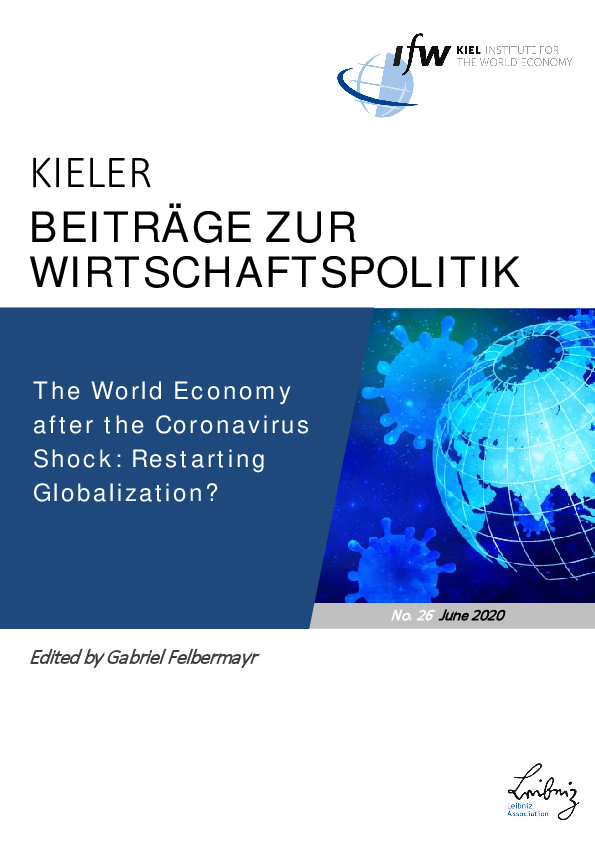Book & E-book
The World Economy after the Coronavirus Shock: Restarting Globalization?
Authors
Publication Date
Key Words
Related Topics
Economic & Financial Crises
Digitalization
Climate
Germany
China
Asia
Africa
Emerging Markets & Developing Countries
Financial Markets
Welfare State
Migration
International Trade
Innovation and Structural Change
Growth
Globalization
Foreign Direct Investments
The COVID-19 virus has spread to 215 countries, virtually covering all areas of the world, and has plunged the world in a health emergency. The virus and the infection control measures by governments have an enormous, worldwide economic impact: when countries are connected by trade in goods, when a lockdown closes factories in one place of the world, essential inputs go missing in other places. And when a corona-induced recession hits one country, or when that area closes its borders for precautionary reasons, sales of goods or receipts from tourism by other countries go down, driving them into an economic crisis even when their own infection rates may be low. In this volume, edited by Gabriel Felbermayr, researchers from the Kiel Institute and from outside the institute provide answers to the pressing questions: How does the crisis change our world? Will there be lasting effects on our economies and on our societies at large? What does this mean for the worldwide living conditions? In this volume, they shed light on these questions from various angles, but always maintaining the global perspective.
With contributions by:
Gabriel Felbermayr and Holger Görg; Dennis Novy; Wolfgang Lechthaler; Dirk Dohse and Julian Vehrke; Sebastian Horn, Carmen M. Reinhart, and Christoph Trebesch; Philipp Nickol and Lucie Stoppok; Kacana Sipangule Khadjavi, Tobias Stöhr, and Rainer Thiele; Matthias Luecke; Gianluca Grimalda, Fernando Filgueira, Marc Fleurbaey, and Rubén Lo Vuolo; Wilfried Rickels and Sonja Peterson; Dennis Görlich and Juliane Stein-Zalai; Michael Bayerlein and Győző Gyöngyösi.






